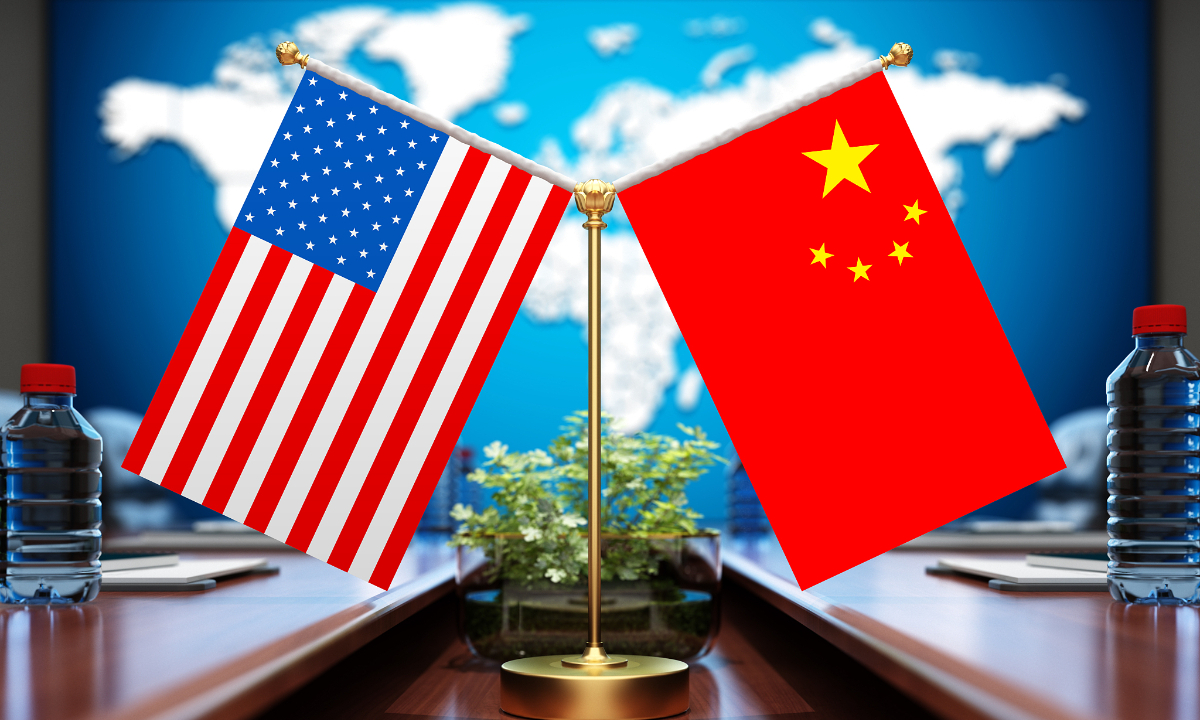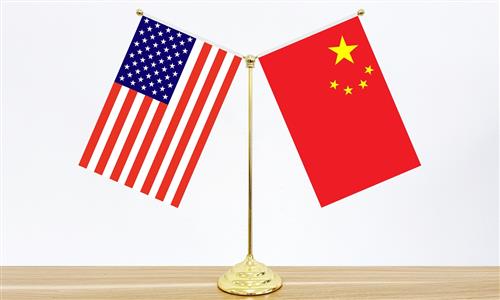Wang Yi reiterates sensitivity of the Taiwan question in ‘candid, substantive and fruitful’ talks with Sullivan

China US Photo:VCG
Senior Chinese diplomat Wang Yi held a new round of talks with US National Security Advisor Jake Sullivan in Bangkok on Friday and Saturday, where the two sides engaged in "candid, substantive, and fruitful" strategic communication on implementing the consensus reached by the two heads of state at the San Francisco summit and properly handling important and sensitive issues relating to China-US relations.
Wang, also director of the Office of the Central Commission for Foreign Affairs and a member of the Political Bureau of the Communist Party of China (CPC) Central Committee, stated that 2024 marks the 45th anniversary of the establishment of diplomatic relations between China and the US.
Both sides should take this opportunity to summarize experiences, learn lessons, treat each other as equals rather than jostling for a commanding position, seek common ground while reserving differences rather than emphasizing divisions, and genuinely respect rather than undermine each other's core interests. Both sides should work together to promote mutual respect, peaceful coexistence, and win-win cooperation, and build the right way for China and the US to coexist.
The Taiwan question is a matter of China's own internal affairs, and the elections in the Taiwan region cannot change the basic fact that Taiwan is part of China, Wang emphasized. The biggest risk to peace and stability across the Taiwan Straits is "Taiwan independence," and the biggest challenge to China-US relations is also "Taiwan independence."
The US side must abide by the one-China policy and the three joint communiqués between China and the US, and implement its commitment of not supporting "Taiwan independence" in action, supporting China's peaceful reunification, Wang noted.
Wang pointed out that all countries have national security concerns, but they must be legitimate and reasonable, and should not engage in politicization or pan-securitization, let alone use these issues to contain and suppress the development of other countries.
Both sides agreed to further discuss the boundaries between national security and economic activities.
The two sides agreed to jointly implement the "San Francisco vision": the two heads of state will maintain regular contact to provide strategic guidance for bilateral relations; promote exchanges at various levels and in various fields between China and the US, make good use of current strategic communication channels, as well as diplomatic, military, economic, financial, business, and climate change dialogues and consultations; continue discussions on guiding principles for China-US relations; launch the China-US anti-drug cooperation working group in the near future; hold the first meeting of the China-US government-to-government dialogue mechanism on artificial intelligence this spring; take further measures to expand people-to-people exchanges between the two countries.
Both sides also discussed international and regional issues such as the Middle East, Ukraine, the Korean Peninsula, and South China Sea.
The communication mechanism between Wang and Sullivan is one of the most straightforward and credible mechanisms between China and US, and their talks have touched on extensive topics that are most urgent, important and sensitive in bilateral relations, Li Haidong, a professor at the China Foreign Affairs University, told the Global Times on Saturday.
Through multifaceted dialogues and cooperation, the two countries seek to expand the positive aspects in bilateral relations and deal with thorny issues in a calm, controllable manner, Li said.
It is hoped that the momentum of engagement can continue in the year 2024, despite the complexity of US domestic politics creating uncertainty for China-US relations, analysts said.

